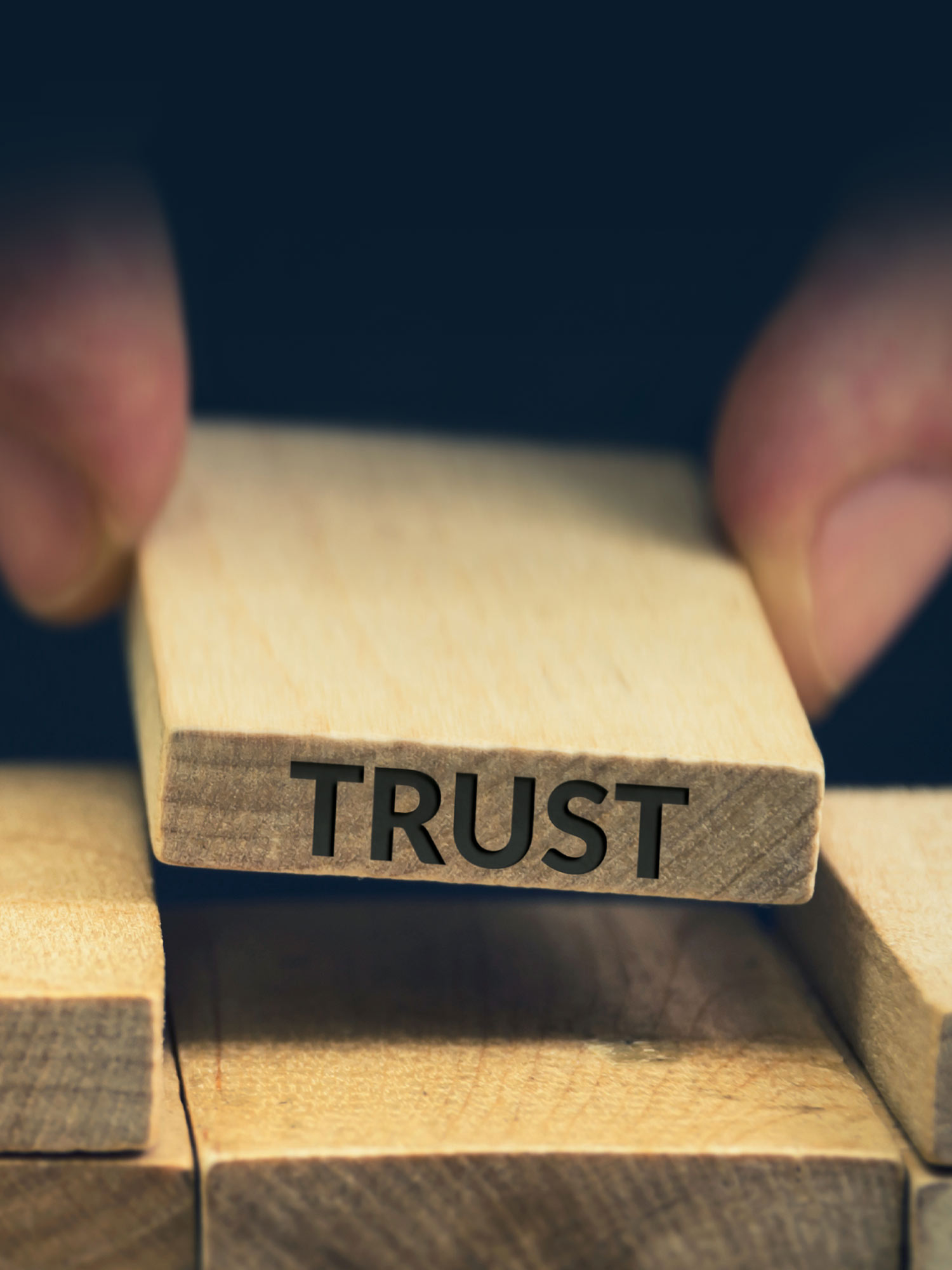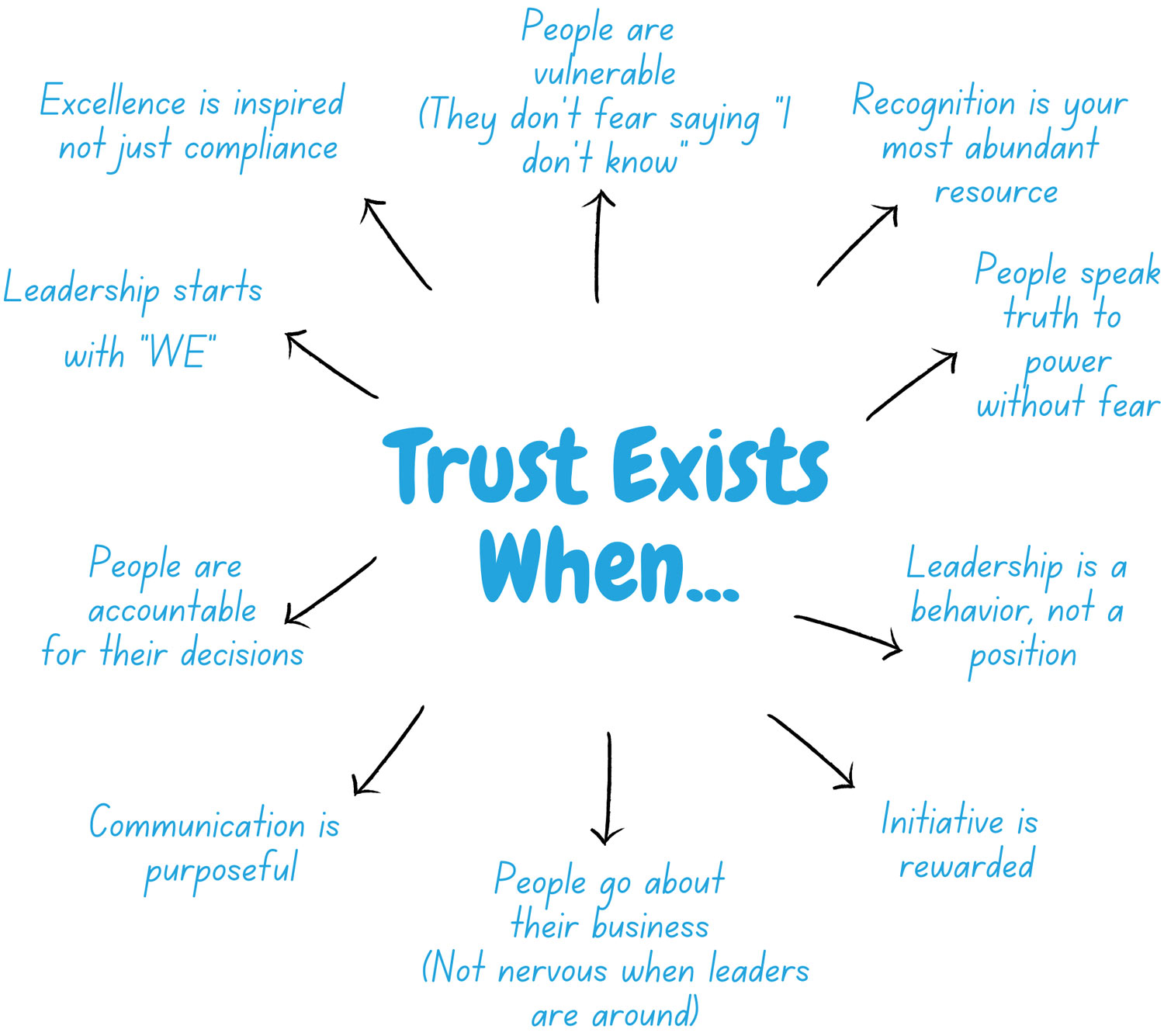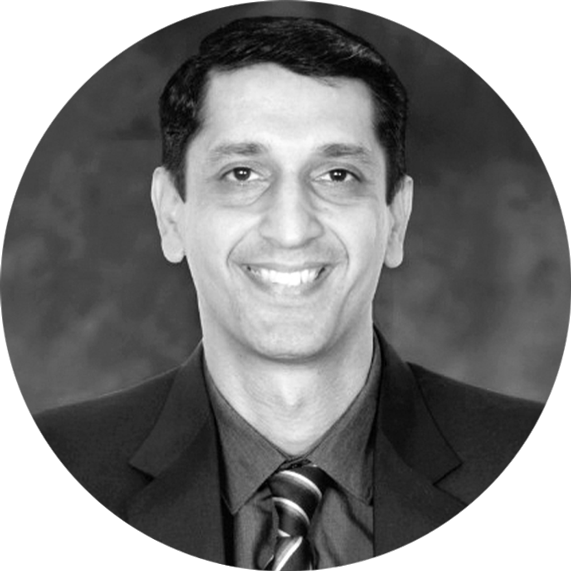In my work, I have observed that leaders and team members depend on each other for career security and social stability. In large-scale projects, the stakes are big, and so is the risk associated with failure.
In my work, I have observed that leaders and team members depend on each other for career security and social stability. In large-scale projects, the stakes are big, and so is the risk associated with failure.

and Happiness
rom my longstanding journey of working in large teams and cross-functional teams, I have personally experienced that the single biggest factor in ensuring peak performance of self and others is TRUST.
“Compared with people at low-trust companies, people at high-trust companies report 74 percent less stress, 106 percent more energy at work, 50 percent higher productivity, 13 percent fewer sick days, 76 percent more engagement, 29 percent more satisfaction with their lives, and 40 percent less burnout.”
I have also learned that even before trust, one needs to inculcate an important skill: being vulnerable. There is always a risk and fear of failure when we work with others within and across teams. This stems from the two imperatives:
- Inability to show vulnerability
- Lack of trust
As Ernest Hemmingway once said, “The best way to find out if you can trust somebody is to trust them.”
In my work, I have observed that leaders and team members depend on each other for career security and social stability. In large-scale projects, the stakes are big, and so is the risk associated with failure.
In my opinion, it is this risk that fosters trust between colleagues, team members, and their leaders/managers. I learned this critical lesson from working in my own team, one which had serious trust, insecurities, and lack of accountability.
The benefits of high-trust organizations are many, with data to prove their effectiveness. In “The Neuroscience of Trust,” which appeared in the January 2017 issue of Harvard Business Review, Claremont Graduate University professor Paul Zak wrote: “Compared with people at low-trust companies, people at high-trust companies report 74 percent less stress, 106 percent more energy at work, 50 percent higher productivity, 13 percent fewer sick days, 76 percent more engagement, 29 percent more satisfaction with their lives, and 40 percent less burnout.”

Adapted from Insights by Matt Whalt and sketch by Tanmay Vora, QAspire.com.
I have worked in diverse organizations, and I have seldom witnessed trust, risk, and vulnerability in people. For that matter, I have never seen senior leadership speak about these important attributes as a part of their yearly culture acceleration training sessions.
Some time ago, my team was engaged in a complex e-learning project, which required the whole team’s efforts. There was shared risk among the team, and individuals began to depend on each other—a new experience for many. This experimental learning not only alleviated serious trust issues but also brought the team closer and forged healthier interpersonal relationships.
This is the foundation of how trust develops and grows. As leaders, we need to be authentic in our intentions and actions to constantly persevere in building and sustaining cultures of belongingness.
I took a leap of faith to see my own risk-taking capacity. This action provided a lot of clarity to gauge the team’s ability to trust each other and to assess my own strengths in fostering this plan.
My core purpose was clear, and when you have authentic intentions, it yields expected results.
I encourage leaders in these VUCA (Volatility, Uncertainty, Complexity and Ambiguity) times to show a deep commitment to excellence as it becomes a prerequisite to creating not only success, but happiness for your people, organization, and communities.
Trust is the stabilizing force that allows people and organizations to confidently navigate periods of uncertainty. I would like to challenge you to reflect on how leaders in your organization can create and foster an environment of shared risk taking.

Zavahir Dastoor is a purpose-driven, curious, and passionate HR/talent development consultant with a success-centered approach toward building talent and potential. He firmly believes that learning is never-ending and should be a consistent vision of one’s life. His extensive experience includes more than fifteen years as an L & D professional and a business coach. Dastoor has worked with top multinationals such as TCS, 3G, and RYAN. His passion is studying leadership and management with an ethos for success: “In today’s world of uncertainty and a highly volatile future, we need to accept, adapt, and demonstrate agility in order to learn, grow, and thrive.”